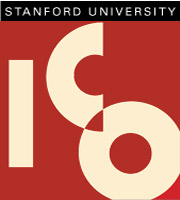Industrial Contracts Office
3000 El Camino Real
Building 5, Suite 300
Palo Alto, CA 94306
ico@stanford.edu
GENERAL INFORMATION - About ICO
ICO Statistics for 2014:
In FY 2014 ICO finalized 170 new industry sponsored research agreements, where companies fund, and sometimes collaborate on, research projects at Stanford. The School of Medicine accounted for just over 52% of the sponsored research agreements and the School of Engineering accounted for about 32% of these agreements. The School of Earth Sciences accounted for another 10% of the total. The rest of the agreements were for projects in the School of Humanities and Sciences, School of Education, the Graduate School of Business and the Independent Laboratories.
Among the other agreements that ICO finalized, Material Transfer Agreements (MTAs) continued to account for the largest number -- with about 480 new MTAs for incoming materials and 130 for outgoing materials. Another 54 agreements covered Stanford investigators sending out human tissues for research purposes.
Other ICO agreements included more than 142 amendments to existing sponsored research agreements, plus unfunded collaborations, data-sharing agreements, equipment loans, plus non-disclosure and other research-related agreements. ICO also handles agreements for Industrial Affiliates Programs.
New Master Research Agreements
SAP Labs Inc. and Stanford completed a master agreement to cover research projects in the areas of genetics and related fields. Two projects have been funded under the agreement: the Cardiovascular Health Study (headed by Prof. Euan Ashley, Department of Medicine), and the Human Genome Sequence Variation Resource Study (headed by Prof. Carlos Bustamante, Department of Genetics). Prof. Ashley’s project aims to sequence the complete spectrum of genetic variation for a form of congenital heart disease called atrioventricular septal defect. Prof. Bustamante’s project will merge disparate sources of data regarding individuals and the genetic variants they carry in order to improve genome interpretation.
In addition, SAP Labs and Stanford signed a second, separate master agreement to cover projects from the School of Engineering.
In March of this year, a master sponsored research agreement between Stanford and L'Oreal was signed with Stanford Bio-X as the facilitator. Since the execution of the agreement, two research projects have been funded.
Other Research
Several professors from the School of Medicine, including Prof. Brian Rutt (Department of Radiology), Prof. Ted Graves (Department of Radiation Oncology), and Prof. Phillip Yang (Division of Cardiovascular Medicine), are collaborating with Bell Biosystems Inc. on projects incorporating Bell’s magnetic organelle (Magnelle®) technology. Bell Bio is a synthetic biology company, pioneering the use of synthetic organelles, cell structures with specialized functions. Its first product, the magnelle, aims to accelerate research in oncology, regenerative medicine and other cell-based fields. The Rutt lab is using Magnelles to track cancer metastasis in the brain, with the aim of detecting single cells. The Graves lab is using Magnelles to track cancer cell migration following radiation. The Yang lab is using Magnelles to monitor cardiac progenitor cell therapies in the heart following cardiovascular disease.
Prof. Gianluca Iaccarino (Department of Mechanical Engineering) received new funding from Doosan Heavy Industries and Construction, a South Korean company, to develop a novel numerical method to simulate the operating environment of steam turbines equipment in power plants, such as turbines and boilers.
Industry Affiliates Programs
Four new Industry Affiliates Programs were created during the year.
ICME is the Institute for Computational and Mathematical Engineering, led by Prof. Margot Gerritsen, (Department of Energy Resources Engineering). ICME supports collaboration with industry partners in areas such as algorithms and optimization, machine learning, data science, computational finance, geoscience, computational medicine and imaging.
The Secure Internet of Things, directed by Prof. Philip A. Levis (Department of Computer Science) is a cross-disciplinary research effort among computer science and electrical engineering faculty at Stanford, the University of California, Berkeley and the University of Michigan, which is focused on analytics, security, and hardware and software systems.
SDSI is the Stanford Data Science Initiative, directed by Prof. Hector Garcia-Molina (Computer Science Department). SDSI focuses on core data technologies with ties to campus-wide application areas for methods research, infrastructure, and education.
The Stanford Digital Learning Forum is directed by Prof. John C. Mitchell (Department of Computer Science). The program is designed to bring together companies and faculty, students, and staff throughout the University who are involved in online learning initiatives.
